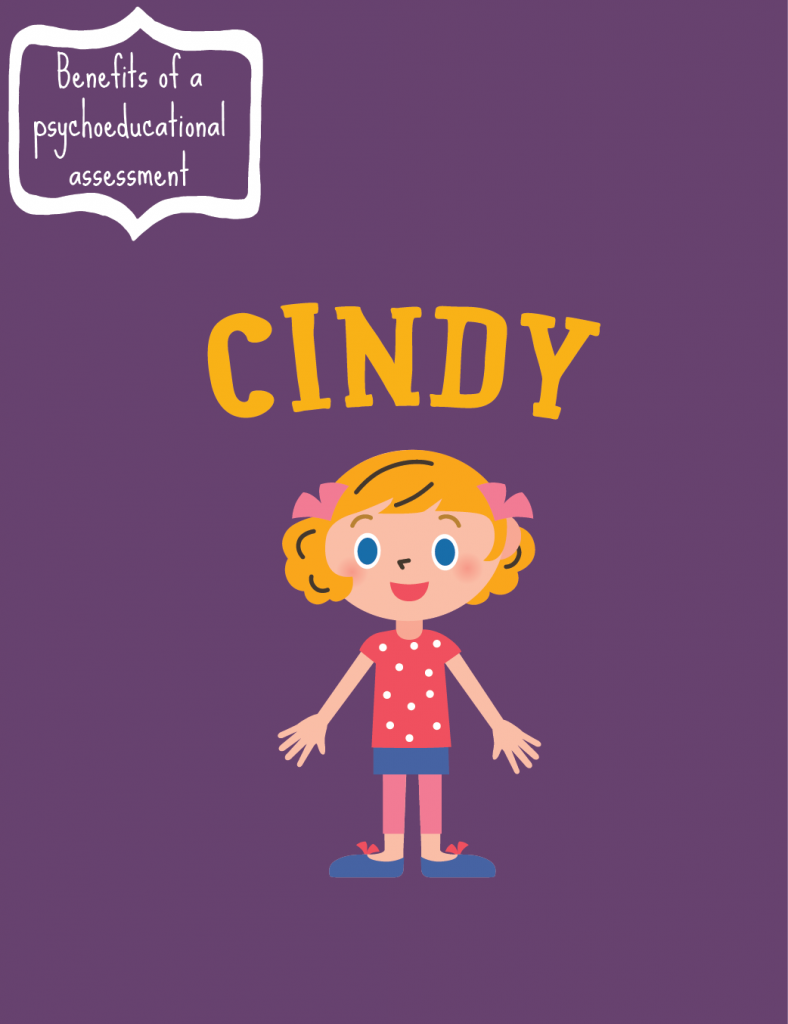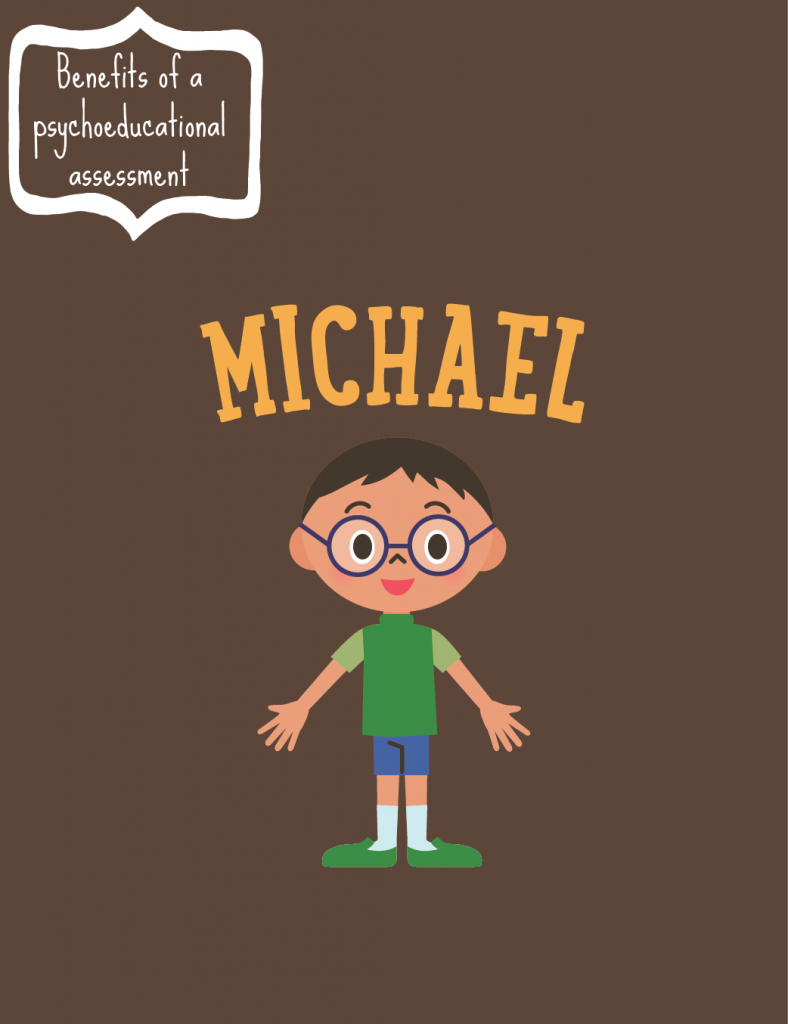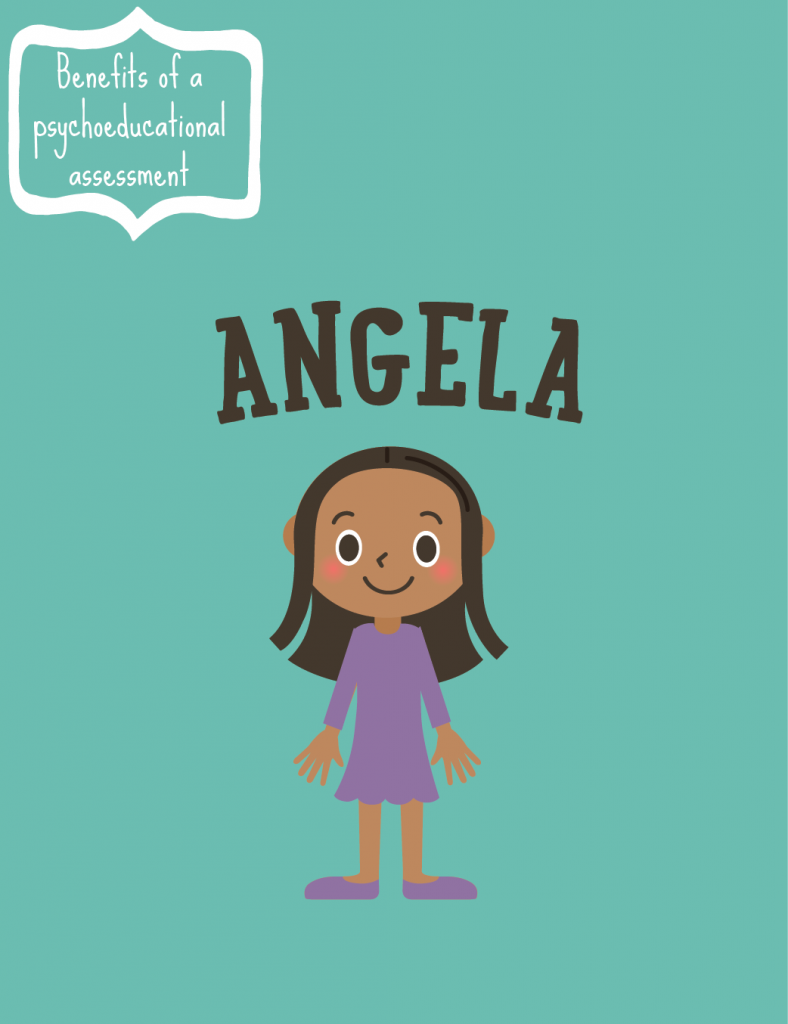Many parents worry that getting a psychoeducational assessment means there is something wrong with their child. This is a myth, plain and simple. A psychoeducational assessment is a way to determine your child’s strengths and weaknesses in many different areas. Not only are these insights empowering but also act as a roadmap for ensuring your child learns and develops to their full potential. Knowing which natural strengths you should help your child to develop is important to improving their happiness and quality of life in the future.
Additional key benefits of psychoeducational assessments are:
- Setting realistic academic expectations according to your child’s strengths and relative weaknesses or challenges
- Identifying what strategies, tools, and resources will maximize their learning
- Determining the most effective academic environment and study strategies for their individual learning style.
Let’s a look at several fictional case studies that illustrate how an assessment can benefit any child:
 Meet Cindy. She is in Grade 4 and her favourite activity is dancing. She takes ballet and jazz classes once per week. She also loves to play dress up, create things with Lego, and draw. Cindy is doing well in school and her grades are above average. Her parents believe she is very smart for her age. They are unsure if they should focus on developing her academic skills or her creative abilities.
Meet Cindy. She is in Grade 4 and her favourite activity is dancing. She takes ballet and jazz classes once per week. She also loves to play dress up, create things with Lego, and draw. Cindy is doing well in school and her grades are above average. Her parents believe she is very smart for her age. They are unsure if they should focus on developing her academic skills or her creative abilities.
Cindy’s parents decide to get a psychoeducational assessment to help them plan for their daughter’s future. The evaluation indeed demonstrates that while Cindy is a bright child, her strengths lie in the creative domains. Cindy’s parents use the recommendations from the assessment report to create a plan that will not only support their daughter’s talents, but also support her other academics by incorporating strategies best suited to her learning style.
A psychoeducational assessment is beneficial in helping parents better understand where they should focus their efforts for development. These decisions are extremely important in the long run for your child’s happiness and quality of life. If Cindy is passionate about dance and art, and demonstrates natural strengths in these areas, her parents should continue to support these pursuits.

Introducing Michael. He is in Grade 2, has a lot of friends, and loves school. His parents believe their son is gifted and want to get a gifted test to see if their son meets the criteria for enhanced learning opportunities at his school. The results of Michael’s gifted test demonstrate that he does not qualify for the gifted stream because his IQ does not fall within the 98th % percentile. His parents want to do a comprehensive psychoeducational assessment to see if their child is gifted in other ways.
Unfortunately, the education system’s definition of gifted is very narrow. Many children are “gifted” in areas outside of the areas measured on a standard IQ test and academics, such as social-emotional skills and creativity. Often a brief gifted test does not show these important areas while a full psychoeducational assessment will. A full assessment includes measures of uncovering personality factors that are often more important in assuring a person’s quality of life long-term.
 And finally, this is Angela. She just started high school and loves to read and write short stories in her journal. Her parents are both engineers who immigrated to Canada and want nothing more than for their little girl to follow in their footsteps. They have enrolled her in all the necessary math and science classes this year to develop these cognitive skills. Angela spends many hours studying and does okay in her math and science classes. However, she seems to excel most in her English class despite little effort and devoted study time.
And finally, this is Angela. She just started high school and loves to read and write short stories in her journal. Her parents are both engineers who immigrated to Canada and want nothing more than for their little girl to follow in their footsteps. They have enrolled her in all the necessary math and science classes this year to develop these cognitive skills. Angela spends many hours studying and does okay in her math and science classes. However, she seems to excel most in her English class despite little effort and devoted study time.
In this case, a psychoeducational assessment was able to determine that Angela has a natural talent in writing, which is a very rare skill. Her test results also indicate that she has average abilities in math. Angela’s parents use this information to enroll their daughter in a Creative Writing camp for March Break and speak to her English teacher about which additional courses she can take in Grade 10 to further develop her writing abilities. Even in the field of engineering, the ability write well is rare indeed so further developing these natural abilities will be beneficial in whatever field Angela chooses to pursue.
Unfortunately most parents and educators focus on a student’s weaknesses at the expense of developing their strengths. While it’s important to work on weaknesses, it is even more important to work on the strengths. In the long run, you want to know what your child is naturally good at doing … and that’s the real value of a psychoeducational assessment for kids without difficulties.
Getting Your Child Tested Early
Normally, parents don’t send their child for a psychoeducational assessment until behavioural problems arise or when grades are affected. This is a shame because an assessment can provide a wealth of knowledge that can ensure your child gets every opportunity to become extraordinary. The results of an assessment often surprise parents because they uncover hidden strengths and talents that are missed or neglected at school.
